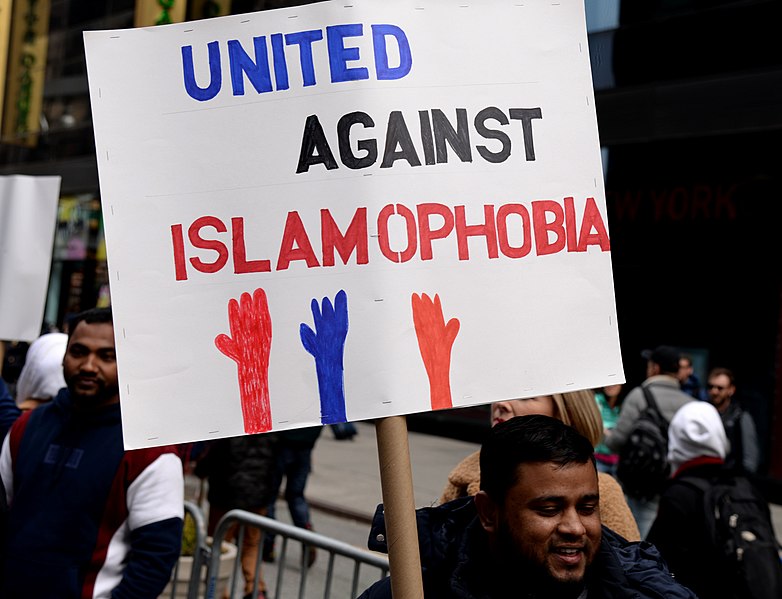
Anti-immigration protesters gathered outside a hotel housing asylum seekers in Hull, as the UK continues to witness violent far-right disorder.
Over the weekend, cities in England and Northern Ireland experienced clashes between anti-immigration demonstrators and counter-protesters, leading to injuries among police officers as they faced objects such as bricks, chairs, and bottles.
Far-right groups have faced widespread condemnation from MPs across the political spectrum following disturbances in London, Manchester, Southport, Hartlepool, and Sunderland. Many incidents targeted mosques and other Muslim religious buildings.
Experts attribute these demonstrations to deep-seated Islamophobic sentiments. The recent wave of unrest was triggered by the killings of three young girls at a Taylor Swift-themed dance class in Southport, Merseyside. Axel Muganwa Rudakubana, 17, who was born in Cardiff and lived near Southport, is accused of the attack. However, false claims spread online that the suspect was an asylum seeker named “Ali al-Shakati” of Muslim faith who had arrived in the UK by boat in 2023.
The Runnymede Trust, a racial equality and civil rights think tank, warned that “violent racism has long been simmering under the surface” of UK society. A spokesperson stated, "What is happening is the direct result of years of normalised racism and Islamophobia, enabled by politicians and the British media."
Islamophobic incidents and rhetoric have surged in recent years. According to Home Office data, religious hate crimes are at an all-time high, with Muslims being the most targeted group. The year ending March 2023 saw a 9% increase in religious hate crime offenses, with two in five of these offenses targeting Muslims.
Despite the spike in hate crimes, authorities have been criticized for their inaction. The Conservative government’s anti-Muslim hatred working group (AMHWG) was "on pause" from 2020 until the party's general election loss, despite repeated promises and an increase in hate crime. The new Labour government’s strategy for tackling Islamophobia remains unclear, and Sir Keir Starmer has been criticized for not engaging enough with Muslim communities in the wake of recent disorder.
The Muslim Association of Britain criticized Starmer, stating, "@Keir_Starmer had no problem meeting @MuslimCouncil when he was in opposition. Now that he is in government, and Muslims are being attacked and Mosques have become targets, his government has no plans to meet the largest body representing Muslims in the UK. What changed?"
During the general election, a Muslim political group received a surge of racist abuse and violent threats, leading to a police report. Far-right activists clashed with police in Sunderland on Friday, further highlighting the growing tensions.
In March, the Islamophobia Response Unit (IRU) reported a 365% increase in Islamophobic incidents since the October 7 attack on Israel by Hamas. Muslims in Britain have expressed fear of leaving their homes after dark.
Qari Asim, chairman of the Mosques and Imams National Advisory Board, voiced concerns about the planned far-right riots, stating that Muslims are "deeply worried and anxious." He attributed the violence to rising Islamophobia perpetuated by social media, mainstream media, and some populist leaders.
Former Tory MP Lee Anderson's comments about the Muslim Mayor of London, Sadiq Khan, being "controlled" by "Islamists" led to his suspension from the party. Anderson later defected to Reform UK, maintaining his stance.
A 2021 independent review led by Professor Swaran Singh found persistent "anti-Muslim sentiment" within the Conservative Party. Although a 2023 report noted progress, it also highlighted slow implementation of recommendations. The Labour Muslim Network's 2020 report documented consistent experiences of Islamophobia among Muslim members and supporters, prompting calls for an inquiry into the issue.
Media coverage has also been criticized for perpetuating Islamophobia. A 2021 report from the Muslim Council of Britain’s Centre for Media Monitoring (CfMM) analyzed over 10,000 articles and clips from the winter of 2018, finding that 59% associated Muslims with negative behavior, over a third misrepresented or generalized about Muslims, and terrorism was the most common theme. Photo by Felton Davis, Wikimedia commons.


































